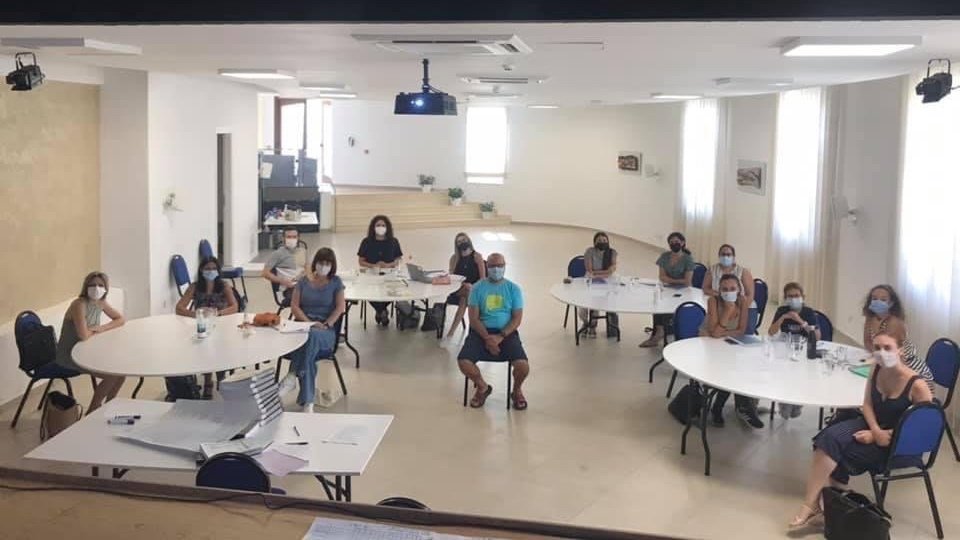Enhancing Autism Assessment in Malta: Interview with Dr Mark Lovell
Dr Mark Lovell is a familiar figure in Malta, having previously visited the country to conduct one of the initial training courses on the Autism Diagnostic Observation Schedule (ADOS-2).
As we prepare for the upcoming training scheduled from the 19th to the 23rd of June 2023 in Malta, we had the pleasure of interviewing Dr Lovell, an experienced ADOS-2 trainer. Dr. Lovell will lead this training session in collaboration with local ADOS-2 trainer Dr. Nigel Camilleri, a highly regarded Consultant Child and Adolescent Psychiatrist. Ms Veronica Montanaro, a Speech and Language Pathologist, will assist them during the training.
Q: You have traveled to several countries to provide ADOS-2 training. What sets this training apart from other available options?
A: This ADOS-2 training is a full 5-day course, ensuring both clinical and research validity. Trainees are required to pass a post-course skills assessment, which guarantees a high level of proficiency. Unlike online or self-paced courses, this training is conducted face-to-face, providing trainees with supervised practice using the ADOS-2 materials. The course will be in English, but participants will have access to Maltese-speaking trainers. We have received 100% positive feedback from trainees who completed this course in the UK, Malta, United Arab Emirates, and KSA (100s of trainees). The benefit of training in Malta is that it reduces travel, accommodation, and meal costs. Additionally, trainees can access the trainers (myself and two local trainers) for long-term advice on ADOS-related topics, which sets this training apart from other options.
Q: How many modules are there in the ADOS-2 training?
A: The ADOS-2 training consists of five modules, covering assessments for individuals ranging from toddlers to adults, encompassing pre-verbal and fully verbally fluent individuals.
Q: You have visited Malta several times and have been instrumental in increasing the standard of ADOS-2 report writing. What do you enjoy about coming to Malta?
A: The people, the food, the weather but not the traffic.
Q: What progress have you seen in Malta with regard to the assessments of Autism?
A: Over the visits to Malta, I have witnessed significant progress in autism assessments. Professionals in Malta have developed greater skills, particularly in observational techniques. There has been a notable improvement in report writing, with better integration and breakdown of evidence into the diagnostic criteria. This overall progress demonstrates the commitment of professionals in Malta to enhance the quality of autism assessments.
Q: Could you explain what makes an assessment process 'gold standard'?
A: A gold standard assessment process for autism incorporates several key elements. We refer to the NICE guidelines (England & Wales) or SIGN (Scotland). It involves a comprehensive developmental and autism-specific history and interactive observations such as the ADOS. Assessments should include observations in various settings like home and school and speech and language evaluations. Moreover, it is crucial to consider physical and mental health aspects and other neurodevelopmental or behavioral conditions to differentiate or identify co-occurring conditions. A needs-based plan should be developed as a result of the assessment process, ensuring a holistic approach to care.
Q: What, in your opinion, is the cause of misdiagnosis or missed diagnosis?
A: Misdiagnosis or missed diagnosis of autism can occur due to various factors. One significant factor is diagnostic overshadowing, where other conditions such as intellectual disability (ID), attention deficit hyperactivity disorder (ADHD), conduct disorder, or developmental trauma may mask or overshadow the autism diagnosis. Additionally, the knowledge and skills of referrers and assessors play a crucial role in accurately identifying autism. It is important to continually enhance these skills to minimize the risk of misdiagnosis or missed diagnosis.
Q: How can we ensure that individuals with autism receive the best possible care and support?
By generating a meaningful multiagency needs-based plan, advocating where needed, supporting where required, and always reasonably adjusting to needs. This may require a variety of resources, which might need to be commissioned.
Q: What do you hope professionals will gain from attending the ADOS-2 training in Malta?
Skills and knowledge to be able to deliver ADOS-2 assessments as part of Autism assessment. For any ability and from toddler to adult age. A wider improvement in Autism observation skills.
Q: How important is it for professionals to stay up to date with the latest research and developments in autism assessment and treatment?
If you want to deliver evidence-based care, knowledge of the evidence base should precede the care offered. The evidence base and application of guidance allow clinicians to know what should work, what won’t work, and the balance between benefits and potential for harm. In addition to the 5-day training course, I also hope to hold a refresher evening for the professionals who have already been certified to administer the ADOS-2. This will consist of a 2-hr CPD event, where professionals can maintain their skills in administering the ADOS-2.
Don't miss out on your chance to get certified to administer the ADOS-2 assessment. Dr Mark Lovell will be coming to Malta to deliver a 5-day course on the ADOS-2 from the 19th to the 23rd of June, 2023. This is a fantastic opportunity for anyone who wants to gain a recognised qualification in this field. There are only limited places available, so if you're keen to participate, make sure to secure your booking by completing this form: RESERVE Your Spot






